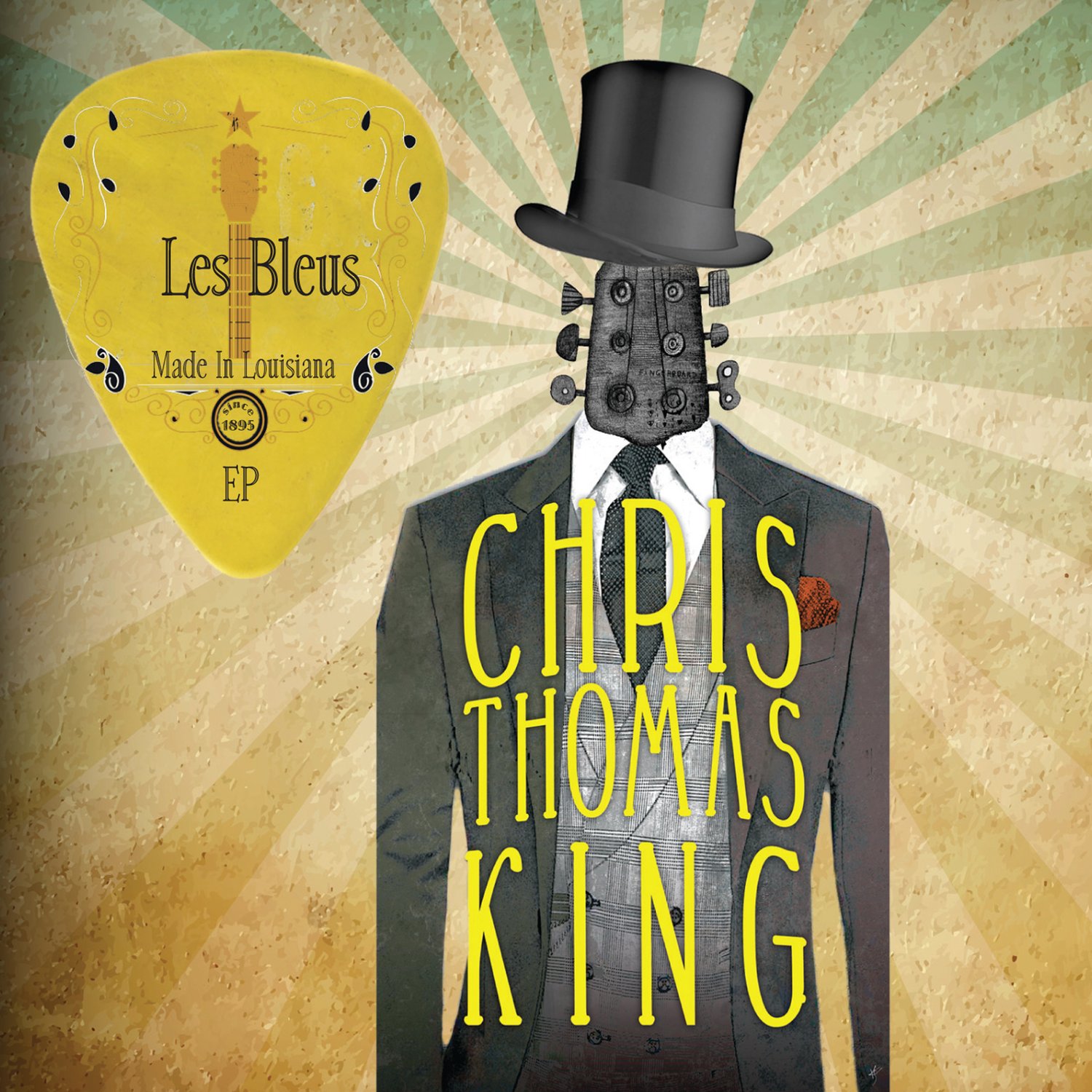Sacré Blues
Chris Thomas King questions everything we think we know about the blues
BY ALEXANDRA KENNON For Country Roads Magazine
Blues musician and author Chris Thomas King.
From deep within the Mississippi Delta, the legend of the founding of the blues is one held by the labor-worn hands of descendants of the enslaved, eclipsed by the story of how Robert Johnson sold his soul to the devil. This genre genesis is the latest chapter in Southern history to receive a thoroughly-researched audit and closer inspection of where historical fact blurs into myth. In the 2021 book The Blues: The Authentic Narrative of My Music and Culture, an unconventional historian boldly reclaims ownership of his own culture.
“WE ARE NOT EVEN DOWN IN THE DUMPS AND SAD AND DEPRESSED AT A FUNERAL. WE DO A SECOND LINE,” KING SAID. “WHY ON A FRIDAY OR SATURDAY NIGHT AT MY DAD’S JUKE JOINT…WHY WOULD THE BAND BE SINGING SAD, DEPRESSED SONGS? WHY? IT DOESN’T EVEN MAKE ANY SENSE. IT’S LIKE THE EMPEROR IS BUCK NAKED…ONCE I POINT TO IT, THEN PEOPLE CAN SEE IT.”
Grammy-winning blues musician, actor, producer, and now author Chris Thomas King asserts that the blues has been commodified and presented as African American folk art by white purveyors, equating projects like ethnomusicologist Alan Lomax’s field recordings of folk music (including the blues) to the audio equivalent of National Geographic staging photographs of native populations. The son of Baton Rouge blues icon, and owner of famous Tabby’s Blues Box, Tabby Thomas, King says he experienced this phenomenon first-hand at a young age. “I was the last folk blues musician, quote-unquote, ‘discovered’ by folklorists in the twentieth century,” King said, referencing his first recording with the Library of Congress. “So, in a way, I was first introduced as this folk purveyor of primitive music, primitive expression, you know, which is what these folklorists and sociologists called the blues. And when I was younger, I had no idea—I just thought I was making a record and I was gonna go and be a pop star like everybody else. But I was caught up in a circle of cultural brokers. And that’s an important [phrase] that I use to describe these people, they’re cultural brokers who are brokering in Negro primitivism.”
The accepted origin story of the blues being born of impoverished and illiterate people deep in rural Mississippi fit into that image—but that doesn’t make it accurate, according to King. Through extensive research largely in the form of primary documents and historical accounts from musicians, King instead asserts that the blues was introduced in New Orleans’s Storyville and French Quarter venues by musicians like Jelly Roll Morton, King Oliver, and Buddy Bolden; overturning the commonly accepted Mississippi blues genesis story. “My findings prove that the blues actually began in Louisiana, and it did not begin in Mississippi. It did not have anything to do with slavery. It did not have anything to do with those plantations in Mississippi,” King said. “We Louisianans have given our culture over to Mississippi and let them tell our story.”
In fact, King argues that even the name of the genre has been misinterpreted—rather than “the blues” referring to depression or sadness, he asserts that it comes from the Creole French blaspheme “sacré bleu,” and instead referenced the historically “lewd” entertainment that came out of New Orleans’ pre-WWI red light district Storyville—the same way that the term “blue laws” referred to morality in Louisiana, which restricted actions like purchasing alcohol or dancing on Sundays. “The blues was antithetical to that, and saying, ‘No, we’re gonna do it anyway. We’ll do it our way. We Louisianans, we Creole people, we have a certain culture on Sunday. We’ve been going out to Congo Square and having dances and playing our music and having festivals since the 1700s. And we’re not getting ready to stop doing that because some Anglo Saxon Protestants showed up, and they want to make a whole new rule.”
“We are not even down in the dumps and sad and depressed at a funeral. We do a second line,” King said. “Why on a Friday or Saturday night at my dad’s juke joint…why would the band be singing sad, depressed songs? Why? It doesn’t even make any sense. It’s like the emperor is buck naked…once I point to it, then people can see it.”
The Blues has been chosen as the East Baton Rouge Parish Library’s One Book One Community selection for 2023, which kicks off with a party at the East Baton Rouge Parish Main Library on Goodwood Boulevard on March 19 at 4 pm. Already having caused quite a stir among historians and musicians, the title is certain to give Louisianans plenty to discuss—and reclaim ownership of, according to King. You can purchase The Blues at chicagoreviewpress.com and learn more about the OBOC programming at readonebook.org.

